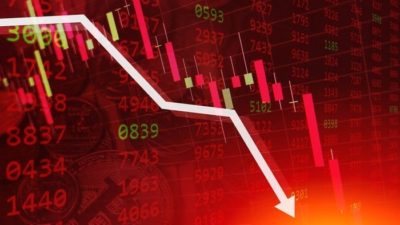This article was originally published on Fool.com. All figures quoted in US dollars unless otherwise stated.
There's a reason Warren Buffett is often regarded as one of -- if not the -- greatest investors to ever live: He's very good at it. Tens of billions of dollars good. Due to his success, people often look to his portfolio (via his company Berkshire Hathaway) to influence many of their investing decisions.
Berkshire Hathaway's portfolio is loaded with blue chip stocks, including its top three holdings: Apple, Bank of America, and Coca-Cola. They each represent 41.3%, 10.2%, and 7.2% of Berkshire Hathaway's portfolio, respectively (as of March 31, 2022).
If you're wondering why a company with 50+ holdings has 58.7% of its portfolio in three stocks, it's because blue chip stocks have stood the test of time and proven to be great long-term investments, regardless of broader economic conditions.
Blue chip companies find a way to survive
For a company to be considered blue chip, it must be worth billions and be one of the top leaders in its sector, and you don't usually get to that point unless you have lots of resources. Resources that come in handy during bear markets, recessions, and everything in between. Warren Buffett has always preached long-term investing, and part of that is understanding that rough economic times are inevitable, and if companies can't survive those, they're likely not very good long-term investments.
Since the 1980s, Apple, Bank of America, and Coca-Cola have made it through Black Monday (1987), the dot-com bubble crash (late '90s/Early '00s), the Great Recession (2008), and the early stages of the COVID-19 pandemic (2020). Not only have they made it through, but they've also been valuable investments since then.
During the dot-com bubble in 2000, Apple traded at around $150 (the price at the time, not today's price after stock splits through the years) and dropped as low as $13 in 2002. It's since provided some of the greatest returns we've ever seen in stock market history.
From November 2006 to March 2009, Bank of America's stock dropped over 94%. Over the next decade, the stock increased by more than 750%. In early 2020, Coca-Cola saw its stock price plunge by more than 36%. In the little over two years since then, the stock has increased by more than 60%.
Keep your eyes on the long-term prize
It can be hard to convince yourself to focus on the long term when you're seeing your portfolio drop right before your eyes during bear markets and rough periods in the stock market, but it's necessary. If you're investing for the long term -- and you should be -- you have to believe the companies you're investing in will find ways to adjust to the times and produce great results in the long run.
One thing that Apple, Bank of America, Coca-Cola, and lots of other blue-chip companies have in common is they find a way to adapt to broader economic problems they didn't themselves create. Apple didn't cause the dot-com bubble, Bank of America wasn't the main culprit in the Great Recession, and Coca-Cola didn't cause a global pandemic. Yet each time, they had the resources available to adapt and weather the storm.
That's why, like Warren Buffett, you should rely on blue chip companies to represent the bulk of your portfolio. There's no such thing as a foolproof investment, but blue chip stocks are as good as it gets.
This article was originally published on Fool.com. All figures quoted in US dollars unless otherwise stated.









